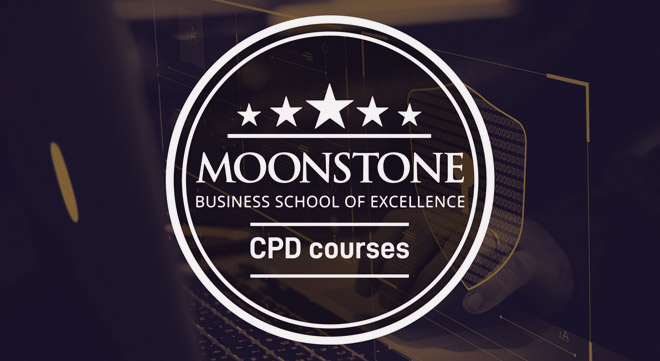Typing “the benefits of continuous education and training” into Google Scholar yields an overwhelming number of research results, underscoring its widespread importance.
Recent research by Harvard DCE Development and the World Bank shows that continuous education is crucial in today’s fast-evolving job market. The key benefits include career advancement, job security, skill development, increased job satisfaction, adaptability, innovation, networking opportunities, and long-term success.
Continuous education keeps individuals current with industry trends and helps them to acquire new competencies, enhancing their value to employers. This boosts job security and opens opportunities for promotions and career growth. Research also indicates that lifelong learning develops hard and soft skills, crucial for career success and personal growth. Employees who engage in continuous learning feel more competent and confident, leading to higher job satisfaction and productivity.
Additionally, continuous learning fosters adaptability, allowing individuals to adjust quickly to new technologies and methods. Organisations that support continuous learning tend to be more innovative and competitive. Participating in professional development activities, such as workshops and online courses, provides valuable networking opportunities, leading to mentorship and new career prospects.
Edel Goldbach, academic manager at Moonstone Business School of Excellence (MBSE), confirms the need for continuous self-improvement to remain competitive.
MBSE is an online education provider that offers a range of accredited qualifications, short courses, and CPD courses approved by various professional bodies.
Goldbach says that with job scarcity and intense competition, it’s crucial for anyone, whether currently employed or seeking a career, to think about pursuing further studies. Otherwise, you might find yourself falling behind in the fast-paced world of work.
“Also, if you look at how fast things change these days, you can’t hope to study one thing and then keep on doing it all your life, because things are changing so quickly. You’re always having to reinvent yourself, learn different skills, and keep on developing and growing,” she says.
She says this is where online learning comes in. It’s a way for people who are already working to continue earning an income while they study.
Highest-rated CPD courses
Interestingly, in MBSE’s analysis of the 10 most popular CPD courses (highest course enrolments), seven covered soft skills, two covered technical skills and one covered regulation.
MBSE’s highest-rated CPD courses for the last cycle were:
Customer Service and Building Client Relationships
This course focuses on understanding various customer types and enhancing the way they are served, with the added benefit of personal growth for participants. Aimed at financial advisers and representatives, it is also ideal for anyone needing a refresher on customer service or looking to build better knowledge and skills in this area.
Student feedback: “It has improved my approach to customers and given me a more positive outlook on customer service.”
This course is designed to refresh your knowledge of the advice-giving process, emphasising its importance and benefits, and providing a comprehensive understanding of Treating Customers Fairly (TCF). You’ll gain an in-depth understanding of each of the six steps involved. Additionally, the course includes ombud cases as cautionary examples from which to learn.
Student feedback: “[The course] provided me with a better understanding and the pitfalls to look out for when it comes to providing advice.”
Ethical Conduct and Business Culture
This course is designed to provide you with a better understanding of the importance of ethical conduct and ethical business culture. It will provide you with the tools and skills to assist in fostering a culture of ethics and integrity in the organisation through codes of ethics and standards of conduct, training and awareness, as well as the significance of leading by example.
Student feedback: “A non-negotiable for self and the organisation must be part of your DNA to conduct yourself in the right manner, ie do the right thing even when no-one is watching.”
A Guide to Mindfulness in the Workplace
Mindfulness is the ability to stay present in the moment without judgment. Research shows that mindfulness helps to manage stress and anxiety, leading to better decision-making and productivity. This course provides an overview of essential mindfulness tools, strategies, and practices to boost employee wellness and productivity. It aims to help you use mindfulness to manage personal well-being and enhance productivity.
Student feedback: “Very insightful and I think mindfulness is very much underrated in corporate workplaces.”
Treating Customers Fairly (TCF) Overview and Unpacking What it Means
The purpose of Treating Customers Fairly (TCF) is to ensure that financial services firms act in the best interests of their customers. TCF is a regulatory requirement from the FSCA. This course provides the knowledge and practical application needed to implement TCF outcomes in your role and customer interactions.
Student feedback: “It has changed my perception towards financial services providers. As it is their duty to ensure they are providing the best financial decisions for me.”
Flexible e-learning options
MBSE’s CPD courses stand out for their accessibility, offering flexible e-learning options that can be completed on a computer, tablet, or smartphone, anytime and anywhere.
Other features are:
- access to user-friendly, printable training material that is broken up into smaller units, supplemented with relevant multimedia content;
- access to MBSE’s helpdesk – queries are answered promptly; and
- regular self-assessment to help fit CPD training into busy schedules.
Students can access and print their certificate once they have completed all the course activities and passed (at least 60%) the assessments.
Click here to sign up for an MBSE CPD course.



